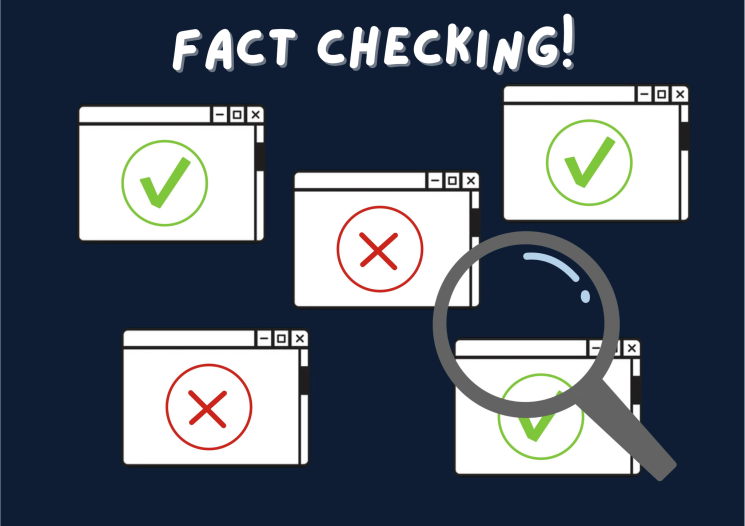
By Emma Nguyen
Every day we consume media, without even knowing it. From social media to billboards to word of mouth, we are constantly bombarded with information, especially in a time with booming technology where news can be spread instantaneously. With the surge of social media in the last few decades, all it takes is one click and information can be seen across the world, usually without any review regarding accuracy.
Why should I be fact-checking?
It might seem like fact checking is only necessary for professional use such as journalism, but it is important to know your facts. By not fact checking your own knowledge and consumed media, you run the risk of spreading misinformation to your peers. This outbreak of misinformation can lead to false narratives and judgement made disingenuously.
Fact-checking not only prevents misinformation from spreading but also expands your judgment. It allows you to consider different perspectives on the same topic and makes you less susceptible to rash statements. While it doesn’t guarantee that your opinion about a topic will change, fact-checking allows you to expand your knowledge and better support your stance on an issue.
Lastly, it is always important to be asking questions. The only way we learn is by questioning our surroundings and that shouldn’t be different with the media we consume everyday. If we were to believe everything we were told, change would never occur and we would be stuck in time.
Ways to fact-check
- Check for credibility
Is your information coming from credible news sources or a meme account on TikTok? This can be an easy way to identify whether your information is trustworthy or just gossip. While social media platforms can be an effective way to spread news, it is still important to check with a reputable source. If your information is being reported on a multitude of websites, then it is likely that your information is true.
- Check for bias
It is easy to ignore our own bias, but it is important to be able to identify bias when fact checking. Being able to understand where your news sources come from can help you identify bias.
For example, new sources such as CNN and the Associated Press (AP) are typically known to be left-leaning meaning that they will bias information that is more liberal. On the other hand, news sources such as FOX News and The Washington Times are known to be right-leaning, so they typically bias more conservative information.
While these news sources are typically credible, understanding their biases can help you better understand their perspectives. You are able to come to a better conclusion on the topic by knowing the implemented biases.
While our new technology allows much more efficiency regarding spreading information, false rumors and gossip have also become more prevalent. We are in a time where it is so important to know your facts and understand them before jumping to conclusions. By continuing to fact check and question our surroundings, I hope we can improve our society and make our communities a better place.





